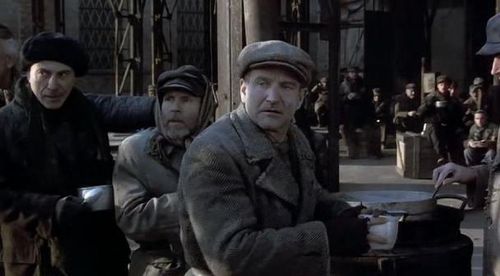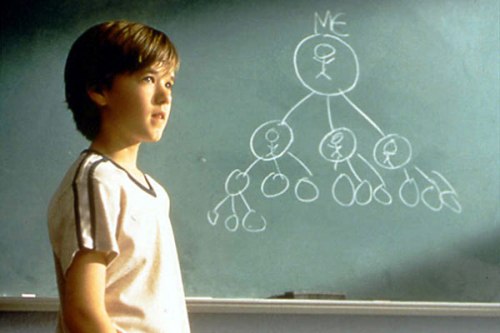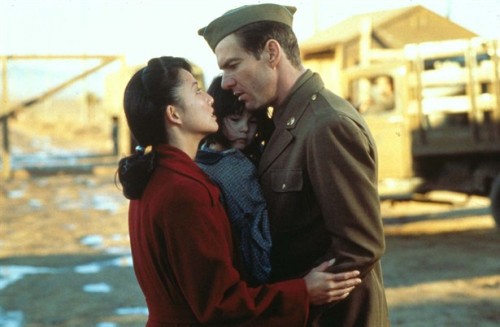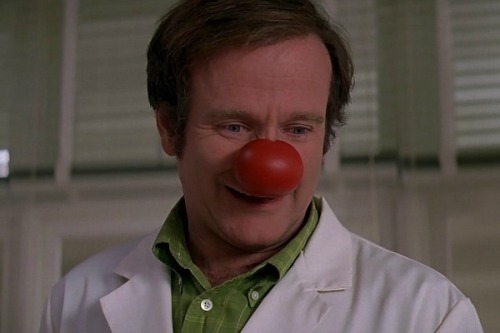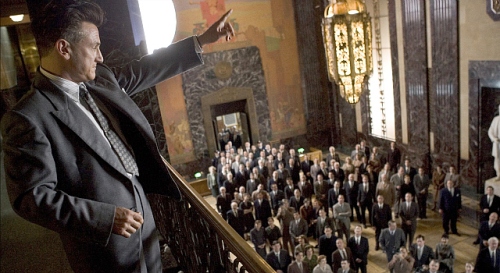When we look at all the movies that have taken home the top award at the Oscars, there will naturally be a few that will divide public opinion over whether they were deserving or not. The Academy Awards are never 100% correct and usually they have made efforts to correct past mistakes whenever they’ve snubbed a film that has gone on to become a classic. But there’s one thing that’s for sure and it’s the fact that earning an Oscar is tough game for anyone. Studios pour millions of dollars into Oscar campaigns, and even still they may come up empty. Like most political campaigns, it all comes down to persuading a large group of people to all think the same way, and in order to do that, the studios will more than likely appeal to the hearts rather than the minds of the voters. One thing you will notice about many Oscar-winning films is that they usually have a message or a cause behind it. Hollywood is a politically minded place, so it seems natural that they would honor films that speak directly to their worldviews. Many well-deserving message movies have been awarded at the Oscars over the years (1962’s To Kill a Mockingbird for example), but every now and then, the movie industry tries a little too hard to appeal to the emotions of the Academy’s voting block.
That is when you see what we commonly refer to as Oscar-bait movies. While you can say that pretty much any film released around award season is an Oscar-bait movie, the ones that do earn the moniker though are the ones that are so transparently crafted for this purpose. The definition of an Oscar-bait movie is not easily defined, but characteristically it is the kind of movie that panders to it’s audience and demands recognition, whether it is deserving or not. And usually when they pander, they will do so in the most embarrassingly manipulative ways. There are some common characteristics that usually defines these kinds of movies: they usually center around a great tragedy (the Holocaust being one of the most exploited); they will have a main character that is handicapped in some way; they usually shoehorn their message in so awkwardly that it actually defeats the purpose of the story; and are more than likely it is too simplistic to be taken seriously. Not all Oscar-bait movies fail; and some are actually very good as a stand alone film. You could argue that some of this year’s favorites fall into this category (Dallas Buyers Club, for example). But when you do recognize that some movies are made purely for Awards attention, it does cast a dark cloud over some of the choices that the film industry has made. What I find fascinating are the failures in this particular class of film, mainly because some of them are among the most notorious failures in cinema history. What follows are my picks for the 10 films that tried too hard to win the gold and failed the hardest.
10.
J. EDGAR (2011)
Directed by Clint Eastwood
This one had all the makings of a sure-fire Awards juggernaut. A notorious historical subject with numerous exploits to draw a story from. An A-list star (Leonardo DiCaprio) in the lead, backed up by a strong supporting cast. A script by recent Oscar-winner Dustin Lance Black (2008’s Milk). And it was directed by one of the Gods of Hollywood; Clint Eastwood. So, what went wrong? This is one movie that I think illustrates the idea of Hollywood trying too hard. There’s no real focus to this movie, despite some nobly mounted attempts. The lack of focus only highlights the flaws in the movie and anything that does work gets overshadowed. Black’s screenplay seems more interested in the personal demons of the notorious FBI director J. Edgar Hoover, but it never really establishes exactly why Hoover was the monumental force that he was famous for being. I do admire the film’s bold attempt to depict Hoover’s secret homosexuality honestly in the movie, but that only gets overshadowed by the heavy-handed delivery of the film’s subtext. Not to mention the horrendous old-age make-up used on DiCaprio and his co-star Armie Hammer. Clint Eastwood is known as a subtle and no-nonsense director, but this film is very uncharacteristic of his style, and not surprisingly, it fell short of his usual success at the Oscars.
9.
JAKOB THE LIAR (1999)
Directed by Peter Kassovitz
The Holocaust has regrettably become one of the most overly used subjects for Oscar-bait movies. The success of Spielberg’s Schindler’s List (1993) at the Oscars sparked a frenzy in Hollywood to try to find more interesting stories to tell from this heartbreaking period in history. While more discussion of the Holocaust is a good thing, few film have been able to match what Schindler’s List accomplished. It was a gritty, brutal film that took it’s subject seriously and brought the horror of it all to life in a way that felt natural. Jakob the Liar was the complete opposite. The film makes the horrible mistake of trying to be a Holocaust movie as well as a starring vehicle for comedic actor Robin Williams. Now Mr. Williams can be a versatile actor and has pulled off a great dramatic performance now and again (i.e. his Oscar-winning work in 1997’s Good Will Hunting). But, this movie doesn’t allow him to expand his dramatic chops. Here, the film has Robin acting as a shopkeeper in a Jewish ghetto who impersonates a radio program, delivering news of the war in a fun way in order to give hope to the people in his community. That’s right, this is a film that allows Robin Williams to do his comedy shtick, in a Holocaust movie!! While the film isn’t too offensively out of tone, this nevertheless feels like a blatant attempt to give Robin Williams an Awards season boost, which thankfully backfired. The movie was dumped off in early September, effectively leaving it forgotten by Awards time.
8.
STAR! (1968)
Directed by Robert Wise
One of the earliest examples of Hollywood going for Oscar gold, and failing in spectacular fashion. Only a couple years after the booming success of The Sound of Music (1965), 20th Century Fox decided they wanted to invest in another grand-scale musical starring Julie Andrews. They reunited her with Sound of Music director Robert Wise and chose for the film’s subject legendary English stage performer Gertrude Lawrence, a role that seemed to be a perfect fit for Ms. Andrews. The film hoped to piggy-back off of the success of Music, and Mary Poppins (1964) for that matter, but unfortunately Fox failed to predict how public tastes would change in the coming years. By the time Star! was released, it was seen as too old-fashioned and audiences could not have been less interested. Unfortunately, Fox had gone over-budget on the film, and the movie bombed almost instantly. The Sound of Music may have been an awards juggernaut in 1965, but it had the luck of being exactly what the audiences wanted at the time. Star! showed that you can’t repeat that kind of success twice in a row, even with all the same players; something that commonly happens with many Oscar-bait movies in the years since. Ironically, Star! lost out at the Oscars to another musical; the grittier, and much shorter Oliver (1968), directed by Carol Reed. The ingredients may work well, but it all depends on whether it’s what we ordered in the first place.
7.
RADIO (2003)
Directed by Michael Tollin
This is one of the more notorious types of movies that we consider Oscar-bait; the ones that center around a character with a disability. Usually the uncomfortable factor comes from the fact that these characters are most often portrayed by able-bodied actors, who we know don’t suffer from these real ailments but they still try to make us believe that they do. Sometimes this works in movies if the actor does put the work into making the disability feel real and honest; like with Dustin Hoffman in Rain Man (1988) or Tom Hanks in Forrest Gump (1994), or to a minor extant with Colin Firth in The King’s Speech (2010). I would’ve put Sean Penn’s notorious performance in I Am Sam (2001) here, but I left it out because Penn’s a good enough actor to almost pull it off. Almost. Unfortunately, Cuba Gooding Jr. was a little out of his league with his role in the movie Radio. Mr. Gooding is a good actor, but his performance is uncomfortably bad in this movie, mainly because he brings little depth to the character. All we see is a actor trying to play mentally-challenged and it just derails the entire film. Not only that, but it makes the movies feel like another pandering attempt to earn the actor an Oscar, which is only deserved if the performer actually shows restraint and humanity in the role. It reminds me of the now infamous monologue delivered by Robert Downey Jr. in the movie Tropic Thunder (2008). You never, ever go “full retard.”
6.
PAY IT FORWARD (2000)
Directed by Mimi Leder
Another common trait among Oscar-bait movies is the film with a message. Now, most movies have their hearts in the right place and can present a message that is well worth delivering. The way that an Oscar-bait movie can ruin this is by taking away all subtlety out of their message and tries to force feed it to an audience. That is the problem with a movie like Pay it Forward. The movie presents the idea of spreading harmony around the world through random acts of kindness done for a stranger, thereby leading that same person to do the same for others, and so on. This pyramid level, trickle-down theory sounds inviting enough and surely deserves a better movie than this. The problem with Pay it Forward is that it doesn’t trust it’s audience to pick up the message naturally, so the message is delivered by characters who are far from realistic and who speak in trite, on-the-nose philosophical dialogue that no normal human being says in reality. The most obnoxious example of this is the character of Trevor McKinney, played by Haley Joel Osment in his first post-Sixth Sense starring role, who comes up with the titular theory of the movie. The character is little more than an adorable tool used by the filmmakers to draw up sympathy for the movie’s message, considering that he has no other personality otherwise. The even more insulting aspect of the film is the fact that it tries to drive home the message by killing off Trevor at the end. That’s exactly what you want in a feel good message movie; a child’s horrible death. The movie was thankfully overlooked by the Academy, and showed that you can’t always pander your way to a award.
5.
COME SEE THE PARADISE (1990)
Directed by Alan Parker
Historical dramas are also a sure-fire way to gain attention from the Academy, especially if they have a message to them too. Come See the Paradise is a largely forgotten historical drama that centers around the internment camps set up here in the United States to hold Japanese American citizens during WWII. One of the more regrettable actions taken by the US government in recent history, it has become the subject of many films since. Alan Parker’s movie made such an attempt, depicting the events of this time in our history through a fictionalized account of an white American soldier (Dennis Quaid) who is drafted to fight in the war, while his Japanese American wife (Tamlyn Tomita) is held captive in one of the camps. The film could have worked, had it not made the mistake of indulging too much in the love story at it’s center. Like most other failed historical romances, this movie leaves the historical elements as an afterthought, making it all look like the filmmakers were using them as a means to make their flimsy love story feel more important. Sometimes it can work in a movie (1997’s Titanic); sometimes it fails (2001’s Pearl Harbor). Come See the Paradise falls short of these films mainly because it just feels lazy. Alan Parker’s direction lacks subtlety and it just makes the movie feel like a historical soap opera, rather than an honest account of the trials that Japanese Americans faced in the camps. History matters to people, and any lackluster attempts at it will make people see films like this as pandering.
4.
PATCH ADAMS (1998)
Directed by Tom Shadyac
Oh, Robin Williams. Are you really this desperate to win another Oscar? Patch Adams is a notoriously misguided movie, but it’s also distinctive for showing us the depths to which Hollywood would sink to trying to win an Oscar. The real Patch Adams, Dr. Hunter Doherty Adams M.D. is an award winning medical doctor known for helping his patients recover through the use of laughter and fun. He’s also someone who takes his profession seriously and works hard to help people around the world. This movie doesn’t acknowledge that and, like Jakob the Liar, instead uses the film to let Robin Williams act like a clown and do his own brand of shtick. The film’s most shameful act, however, is in how it shifted aspects of the real Patch Adam’s life in order to make a more “interesting” story-line. Patch lost a close friend and colleague in a tragic murder early in his career, and the movie includes this in the plot. But it does the shamefully pandering act of changing the sex of the real life person to turn him from a male into a female, so that the movie could have a love interest for Patch, which did not in fact exist. This alone gives you some idea of just how desperate some movies are for Oscar attention. Thankfully, the film was rightfully panned before the Academy could even consider it. Also, the real Dr. Adams has been strongly critical of the film, and with good reason. It’s better to be honest with your film’s subject matter, especially when he can still speak for himself, and shows a lot more intelligence and creativity than the movie ever did.
3.
ALL THE KING’S MEN (2006)
Directed by Steven Zallian
Here’s a rare example of Hollywood actually attempting a remake of a Best Picture winner, in the hopes that it will have the same outcome. The original All the King’s Men won the Oscar for Best Picture in 1949, along with a Best Actor award for it’s star Broaderick Crawford. The remake was undertaken by Oscar-winning screenwriter Steven Zallian (Schindler’s List), who brought together top-tier talent to craft a lavish production based off the original. The cast included Sean Penn, playing Southern politician Willie Stark, who was supposed to be inspired by the real-life Huey Long. Also on board was a cast of A-list actors, like Jude Law, Kate Winslet, and Anthony Hopkins. It all looked like the makings of a movie destined for the Academy’s top award. Instead, the movie was delayed a full year, was dumped off in early September, and was critically panned on release. What went wrong? Again, it’s Hollywood trying too hard to win the gold. Steve Zallian’s script and direction both lacked subtlety, not to mention Penn’s wildly over the top performance. Everyone could see what the true purpose was behind this movie long before it even made it to theaters, which was to wow the Academy with it’s lavish production values and all-star cast; and no one was buying it. The reason why I put it so high on this list is because of how so much was done to achieve so little, and how the hype only helped in dooming the final product. It proves that you can’t manufacture a sure-fire Oscar caliber film, especially if it’s a remake of another winner.
2.
EXTREMELY LOUD AND INCREDIBLY CLOSE (2011)
Directed by Stephen Daldry
This film reads like an Oscar-bait movie checklist. Child with a mental disorder? Check. Grandparents are Holocaust survivors? Check. Father dies tragically in the 9/11 disaster? Check. My god, even the main character’s actual name is Oscar. Couple that with incredibly pandering dialogue and self-empowerment message so full of itself that it would make even Oprah gag, and you get a text-book example of an Oscar-bait movie. This film, probably more than any of the others so far, was manufactured solely for the purpose of winning multiple Oscars. There’s not an inkling of authenticity in this entire movie. It makes it all the more insulting do to the fact that there were so many talented people involved, and none of them are good (except maybe actor Max von Sydow). This film is notorious for a lot of things; particularly for the image of Tom Hanks falling from the top floors of the Twin Towers on 9/11. But, what makes me dislike the movie more than anything else is the main character, Oscar. He’s Trevor from Pay it Forward, only less subtle and far more obnoxious. And again, he’s less of an authentic child and more like a tool used by the filmmakers to hammer home the message. This, honestly, is one of the worst movies I have ever seen in my entire life, and I’ve seen a lot of bad movies. The reason it doesn’t top my list here is because it nearly succeeded at it’s goal. It inexplicably managed to earn a nomination for Best Picture, despite being critically panned. Still, it probably illustrates the most blatant example on this list of a movie made purely as Oscar-bait.
1.
HEAVEN’S GATE (1980)
Directed by Michael Cimino
This movie tops the list mainly because no other film has crashed and burned more heavily in it’s quest for Oscar gold than this one. Michael Cimino set out to create an epic to end all epics with Heaven’s Gate and he had the clout in Hollywood to do it after his hugely successful The Deer Hunter took home Best Picture in 1978. United Artist bankrolled his follow-up, hoping to capture that same success with Cimino and take home a Best Picture win for themselves. What ended up happening was an out-of-control production where the budget skyrocketed and the prospects of an Oscar win dimmed very quickly. Eventually, the film was released after costing $44 million (well over $250 million today) and it made only a 1/10 of that back at the box-office. Not only that, but the movie only managed to scrounge up one Oscar nod in the end; for Art Direction. It lost, of course. Heaven’s Gate is still considered one of the biggest blunders in Hollywood history. Cimino’s reputation as a director never recovered, and United Artists went into bankruptcy, eventually having to sell itself to a bigger studio, MGM. And all because they wanted their shot at a big Oscar win. It’s not a particularly bad movie by any means, and 30 years later it did get a Criterion home video release, which I wrote a review of earlier. The reason I put it at the top of the list is because it represents the biggest failed attempt to create an Oscar winning movie. Much like All the King’s Men, it shows that you can’t just can’t manufacture Oscar glory; only King’s Men didn’t cause the same level of destruction that Heaven’s Gate did.
So, with Oscar Sunday happening tomorrow, I’m sure there will be a lot of second guessing among those who tried hard to win, and didn’t get it. This year, I think there were fewer film’s that were screaming out for Awards attention. Sure, some of them are clear examples of the movies that the Academy likes to honor, but I think this year’s nominees were genuinely made for the purpose to entertain and to inform. None of them seem transparently manipulative or are as pandering as the films that I highlighted on this list. The reason why these movies have a notorious reputation has less to do with the stories themselves, and more to do with the presentation. Audiences, particularly those who vote for the awards, are much more aware and intelligent than some filmmakers like to think they are, and they can tell when they are being manipulated; most of the time. If a movie tries too hard to appeal to the hearts rather than the minds of it’s audience, that same audience will not take it seriously. All movies are manipulative, but if there’s no substance behind it, then it becomes obvious to us that the filmmaker’s only motive behind the manipulation was to garner attention. I think that’s why I like the Oscars more than most other awards. The members who vote are from a diverse crowd of the industry elite, and they don’t all agree on the same thing, and are even less easy to manipulate as a whole. It’s that unpredictability that makes some of these failed attempts so fascinating, because really there’s no easy way to work the Academy in your favor.


